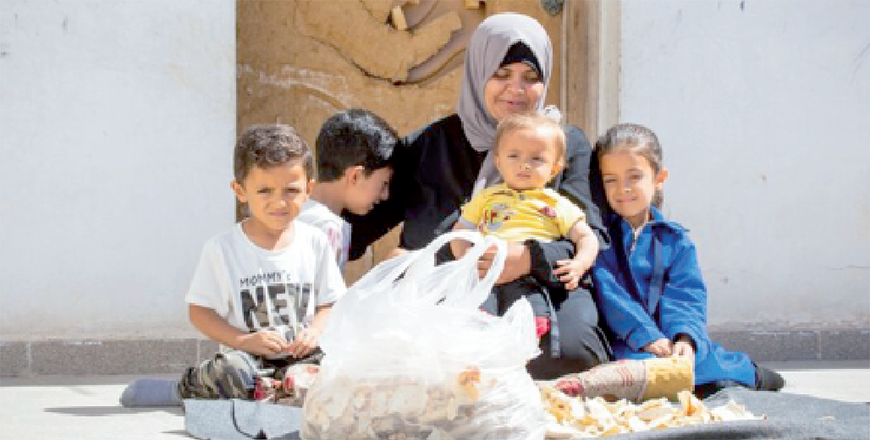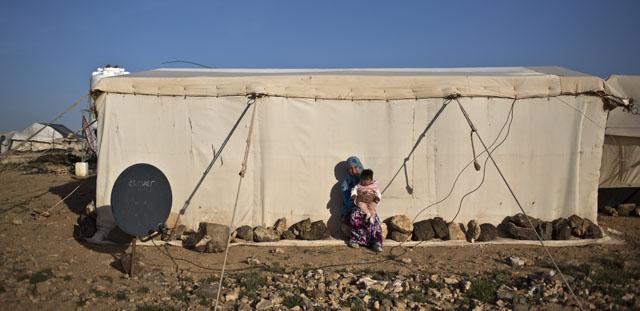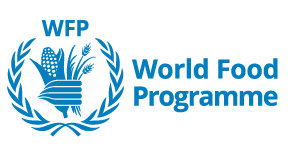You are here
WFP reports 30% decline in value of assistance to refugees due to funding shortfall
By Heba Elayyan - May 29,2024 - Last updated at May 29,2024

The World Food Programme says that the value of assistance to vulnerable refugees in Jordan has declined by 30 per cent (Photo courtesy of WFP)
AMMAN — The World Food Programme (WFP) said that the value of assistance to vulnerable refugees in Jordan has declined by 30 per cent since July 2023 due to a funding shortfall from international donors.
WFP said in its monthly report that it provided food assistance to nearly 410,000 refugees in camps and host communities in April, with a reduced transfer value of JD15 ($21) per person per month.
In response to the increased vulnerabilities among refugees in Jordan, WFP has been advocating for additional funding from various donors.
Jordan hosts the world’s second-highest share of refugees per capita, with 3.5 million refugees, including 635,000 Syrian refugees and 71,000 refugees from other countries, according to the UNHCR.
“The large refugee population in Jordan strains its natural resources, infrastructure, labour market and social services, worsening current challenges. However, Jordan has linked achieving its national economic and social development goals with a progressive approach to hosting refugees,” the report stated.
Jordan’s strategic geopolitical positioning and recent political reforms have allowed it to maintain an average growth rate of 2.5 per cent over the past decade, despite the direct impact of global and regional shocks. Nevertheless, the report highlighted an alarmingly high youth unemployment rate of 46 per cent.
The Jordan Department of Statistics reported an unemployment rate of 21.4 per cent in the fourth quarter of 2023, which is 15 per cent higher than the rates before the COVID-19 pandemic. Of the unemployed, 32 per cent are women.
Under its five-year Country Strategic Plan (2023-2027), WFP said it continues to offer food aid to vulnerable groups in Jordan, and provides technical support for national social protection programmes.
WFP is also refocusing on education and nutrition activities, as well as expanding its climate action initiatives to improve livelihoods and sustainable management of natural resources and food systems.
As part of the National School Feeding Programme, the UN agency said it provided healthy meals to nearly 90,000 students in communities and distributed date bars to around 180,000 students in camps and communities in April.
WFP also, in collaboration with the National Aid Fund (NAF), conducted 15,700 household visits as part of the NAF’s annual beneficiary data validation exercise to determine eligibility for assistance.
In April, WFP completed training sessions for ten government representatives from various ministries and institutions on the Food Security Management Information System (FSMIS), which is part of the National Food Security Strategy (2022-2030) framework.
FSMIS is Jordan’s first management information system for food security monitoring, reporting, and early warning.WFP’s Natural Resources Management project, implemented in collaboration with the International Union for Conservation of Nature, concluded in April.
The project improved the lives and food security of 267 participants (around 1,300 vulnerable Jordanians) by growing 45,100 seedlings and restoring 1,921 dunams of rangelands and forests in multiple governorates in Jordan.
Regarding Gaza, WFP, along with the Logistics Cluster, delivered food, shelter, water, sanitation, hygiene, and other relief items using 1,012 trucks on behalf of 16 organisations.
In April, WFP, in collaboration with the Jordan Hashemite Charity Organisation and the German Air Force, sent convoys and airdropped a total of 22 metric tonnes of ready-to-eat meals into Gaza.
Related Articles
The UN World Food Programme (WFP) has announced that its food assistance for Syrian refugees living in Jordanian communities will be prioritised further to make sure support goes to those most in need.
AMMAN — The Government of Japan contributed $1.1 million to the United Nations World Food Programme (WFP) in Jordan to provide nutrition-sen
Approximately 56 per cent of Syrian refugee households in Jordan are food secure, according to a report released Wednesday.













